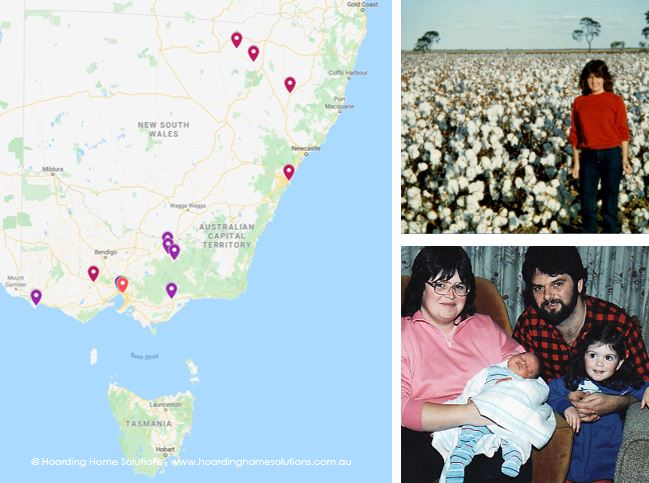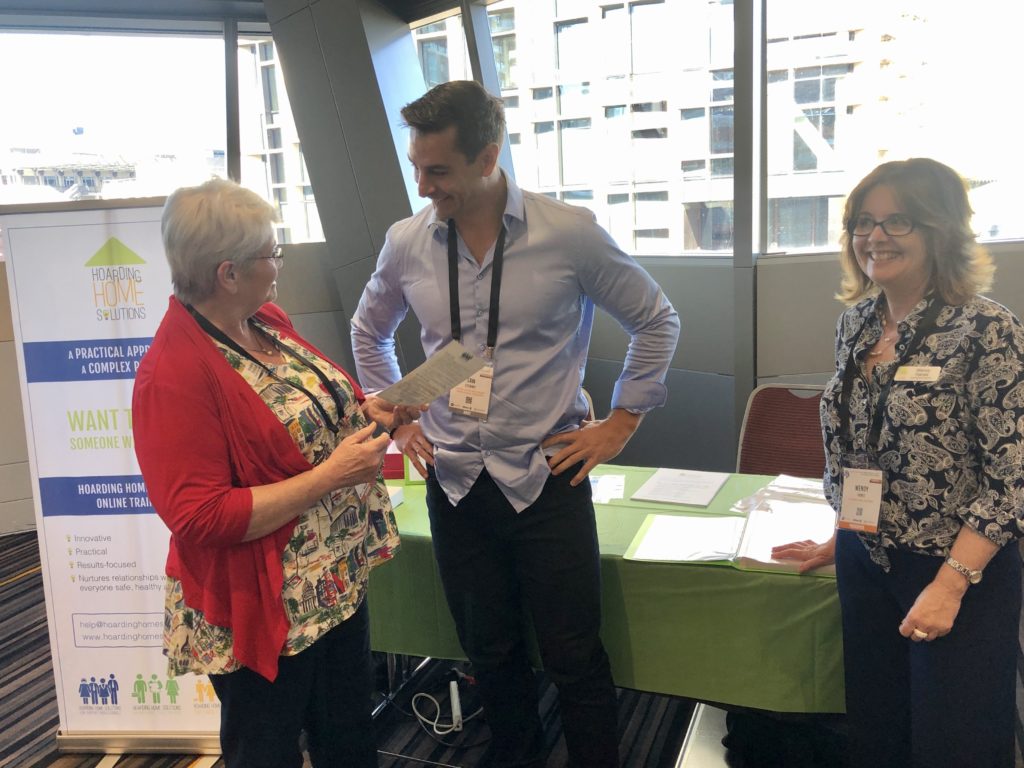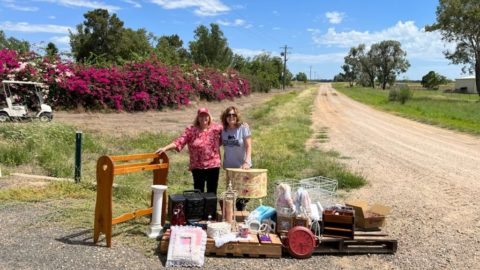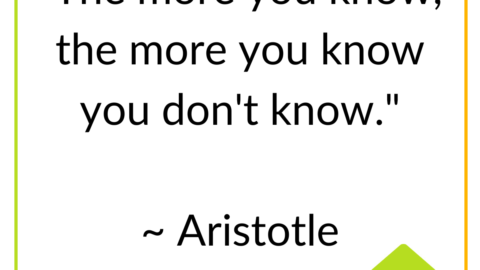
We’ve been everywhere man. And now we’re in Adelaide. We’re here speaking to the delegates at the Rural & Remote Mental Health Symposium about solutions for hoarding and how to create change when services are scarce.
But what do two city slickers know about the challenges faced by people in rural and remote communities? Wendy comes from a long line of generations of farmers, and in 1979 her father uprooted the family and plonked them down in Dundee, 30 minutes from Burren Junction, an hour from Walgett and Lightning Ridge and the middle of nowhere. Her family still live in the big smoke of Wee Waa, while Wendy has found her way to Melbourne, via Tamworth, Sydney and Ballarat. Breaking the stereotype that everyone who lives in the country is a farmer, city girl Angela married a forester and moved around the state of Victoria regularly, raising a young family, experiencing the effects of the vast gap in service availability, compared to what the city had to offer.
In 2012, we were invited to provide hoarding-related training in Tasmania. Everywhere we went we heard about the frustration of workers who did not have access to skilled providers and did not have the skills and confidence to work with hoarding clients. From then on we’ve been on a mission to empower communities and local service providers to effectively support the person who is hoarding.
Remote mental health outcomes have been consistently poorer than those in larger cities. The Symposium is a forum where delegates present their work and ideas, based on the premise that everyone living with mental illness in rural Australia should be treated with respect and equal access to quality health care and mental health care. Technology has allowed new and effective ways of delivering support to remote communities. We are proud to be part of that solution.
If you’ve got a computer and the internet, Hoarding Home Solutions online training is available everywhere man.







